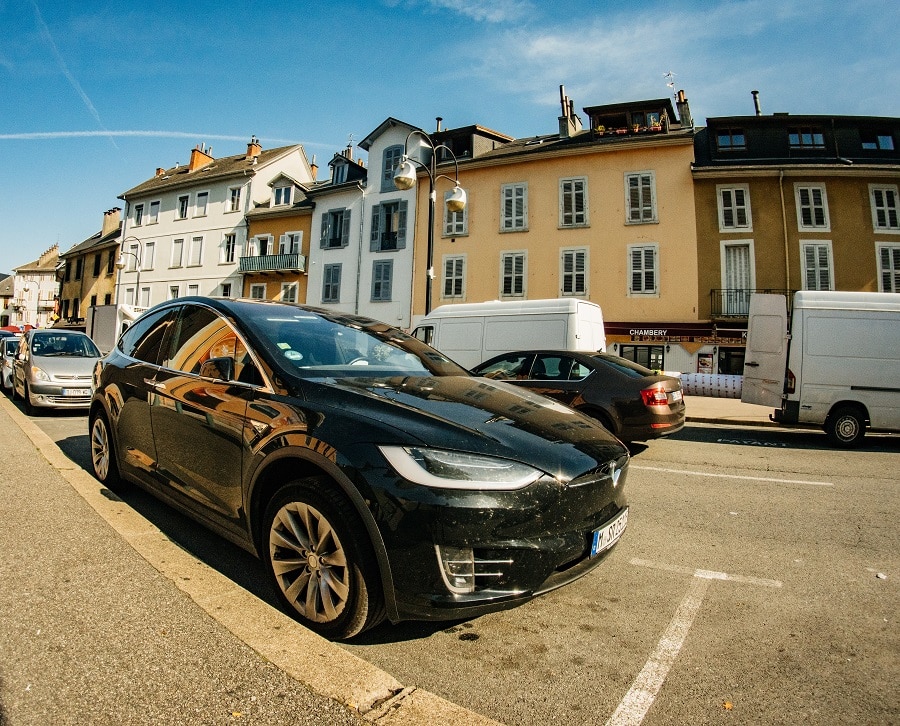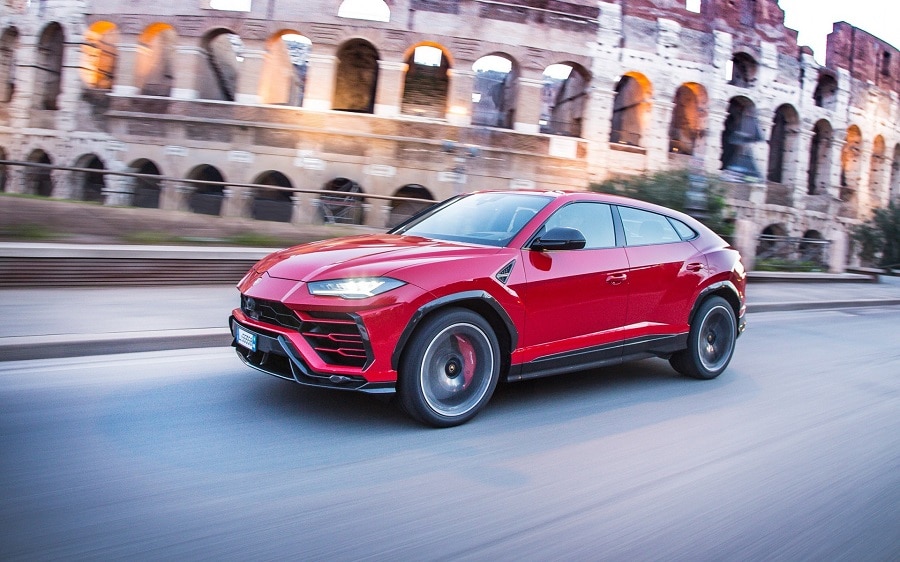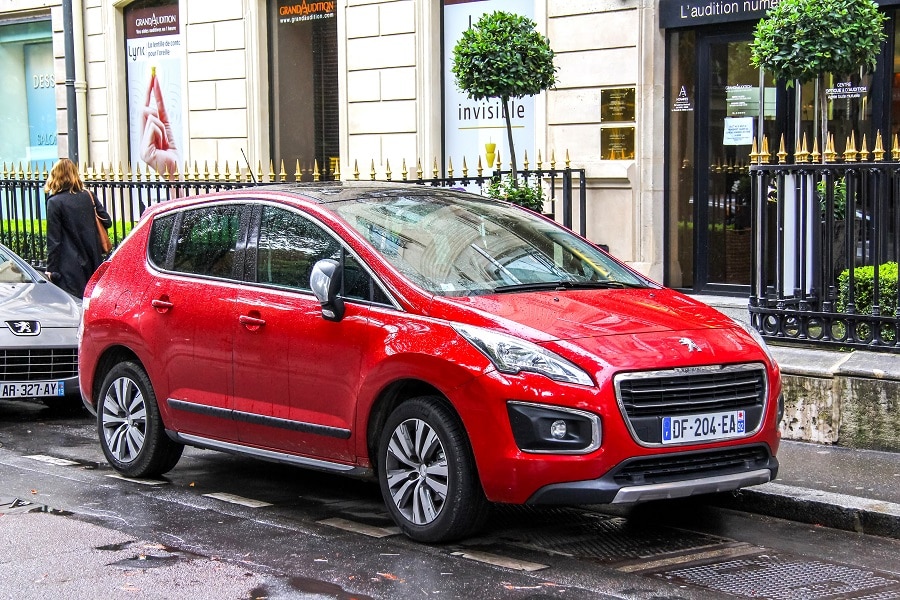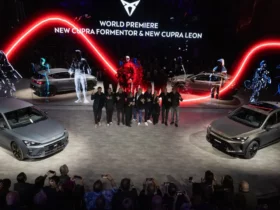One of the biggest problems of modern cities is it waste of public space dedicated to parking cars. And with the latest trends from manufacturers to create ever larger and heavier cars, the parking spaces occupied by SUVs and bulky cars only adds to this criticality. But how can this problem be solved? In the German cities of Freiburg and Tübingen they had an idea: do you park your SUV in the city? For you, parking will cost 6 times more than for a normal car. Confused? Let’s find out everything together, because this position could make school in Germany and beyond.
The news: in Tübingen and Freiburg parking spaces for SUVs and electric cars will cost more, from 30 to 180 euros
The news was born in the beautiful German region of Baden-Wuerttemberg, in southwestern Germany. The Land, characterized by a protagonist nature with its Black Forest, splendid cities such as Freiburg, Tübingen and villages immersed in the forest, is also the birthplace of two Car manufacturers famous all over the world, Mercedes-Benz e Porsche, both established a Stuttgart and surroundings. In recent years, however, the region has been one of the most active in initiatives for environmental sustainability, which it is not though never passed through blind rules aimed at penalizing cars.

Indeed, the measures have always veered for targeted and precise solutions. An example is the establishment of Environmental zone, the low-emission zones, eg controlled entry. Thanks to a sticker glued to the windshield of the car in different colors (red, yellow and green), assigned according to the approved fine dust emissions, it allows access to city centers only for the most virtuous cars, even with diesel. And after this solution, which while not banning diesel has greatly reduced local pollution in large city centers, Baden-Württemberg wants to train again.

The Swabian city of Tubinga, among the first in Germany for the quality of life, has decided on a surprising novelty for its citizens. Until today, in fact, for park your car on the street, it was enough to pay one single municipal tax of 30 euros per year. After several discussions, however, the mayor of Tübingen, Boris Palmer of the Greens, decided for a increase. From next year, in fact, all cars will pay more, but SUVs will get the biggest sting. For parking spaces occupied by an SUV, an electric car and more generally aheavy car, with mass superiore a 1.800 kg, the Municipality of Tübingen will ask for a fee of 180 euros per year.
Why are SUVs and electric cars penalized?
A figure 6 times higher than the current one. Because? Large thermal cars are more polluting, but especially with their weight they put stress on roads and parking lots, not originally made for such bulky cars. Municipal maintenance costs, therefore, increase with the increase of SUVs and large electric cars. Therefore, to recover costs, the Municipality has decided for this sting. But there is more: in the wake of Tübingen, also the city of Freiburg, splendid capital of Schwartzwald, sta to follow this example. Only official is missing, but there is talk of increases that will bring the annual costs for SUV and electric parking around 360 euros.

But why is there all this hatred towards SUVs? As mentioned before, the sting not only affects Sport Utilities, but also cars that are too heavy. With the search for a hard aesthetic, with bulky dimensions to “dominate the road” and, for electric, huge and very heavy batteries, automobiles have generally experienced a marked increase in weight over the past 20 years. If in 2000 an average compact weighed 1100 kg, today a VW Golf easily manages to break through the wall of 1400 kg in running order. Between a greater focus on active and passive safety and an increase in the equipment inside each car, weight has become a real problem for homes and public bodies.

A heavier car, in fact, will consume and pollute much more all other things being equal to a smaller and lighter car. Then, the more heavy cars are, the greater the stress that roads, parking lots and infrastructure will have to withstand. Not to mention the parking problem: if the cars are getting bigger, more and more space will be needed to park the same number of cars.
The fight against SUVs has been going on for years: the examples of Rome and France
For electric cars, unfortunately, the problem is physiological. To achieve adequate autonomy in the current state of the charging infrastructure, large batteries are needed. The larger the batteries, the heavier the weight, the lower the efficiency: a light electric car would consume much less, but current technologies would not allow for more than 200 km of autonomy.

For i SUVinstead, the problem is different. The weight of these giants is not due to physiological problems, but exclusively in fashion. Over the past 10 years, the market has discovered Sport Utility Vehicles, beloved for their rugged aesthetics, raised driving position and feeling of domination of the road. Unfortunately, the aesthetics and the raised driving position carry several disadvantages. With the same dimensions, an SUV is on average between 50 and 200 kg heavier than an equivalent low-wheeled car, and the aerodynamics are worse. This involves a consumption and increased pollution, regardless of the power supply.

However, these critical issues are not new, but well known to motorists and institutions. Regarding the question of SUVs, parking lots and city centers, already in 2004 the city of Rome proposed a tax for the entry into the center of large off-road vehicles, which in the early years of the ’00 began to depopulate. The capital even proposed a ban on high-wheeled cars, which did not turn into reality. In 2020, however, the proposal of the French Ministry of Ecology from tax the heaviest cars. For SUVs and electric cars with weighing more than 1,725 kg, in fact, France would be thinking of introducing the payment of an additional tax, a kind of super stamp anti-SUV. For every kilogram over 1,725 kg, the owner would have to pay 10 euros. A sting that would bring the owner of one Volkswagen ID.4 to pay a super tax from over 3,200 euros.
What is the future of SUVs? No parking in the city or will you turn a blind eye in the name of fashion?
This proposal will be banned by the French state in the coming months, and could enter into force in 2022. If this law is really enacted and comes to fruition, it could generate one chain reaction across Europe. Unlike the United States, where huge and bulky SUVs are not only inherent in the local automotive culture but do not create any logistical problems, in our small European cities, increasingly large SUVs are a real problem.
Our continent, inhabited and urbanized for hundreds of years, is simply not suitable for a full proliferation of large, bulky SUVs and automobiles. The infrastructures, roads and parking lots are not designed for SUVs and cars that are too heavy, and the solutions there are two to this problem. The first would be that of completely review cities and streets, adapting them to new needs. The second would be to convince the automoibilisti of do without cars that are too big and heavy and to avoid excessive diffusion. To do this, parking and taxes will be much more expensive for SUV owners in Germany and France.
This will be enough to get people back on smaller and lighter low-wheeled cars? We do not know yet. Certainly, however, at this rate we could be faced with a war between institutions and SUVs. And the electric ones? For them the hope is to reach a technological level to limit the weight. To date, however, we just have to wait: in a few years we will know everything with certainty.
















Leave a Reply
View Comments